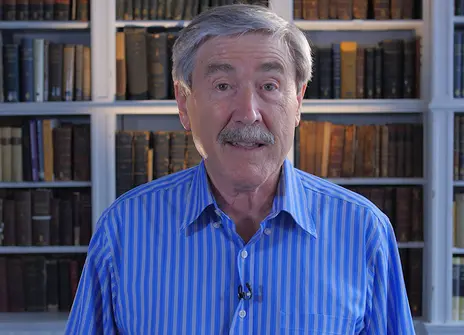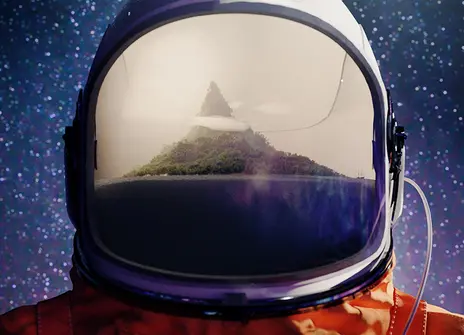How can we see into the mysterious and inaccessible parts of the universe? How can we connect the infinitely large, and the infinitely small? Learn about multi-messenger astronomy, a cutting edge approach that can do this. Watch the Q&A here: https://youtu.be/gwosSABChgM.
Subscribe for regular science videos: http://bit.ly/RiSubscRibe
Read Gianfranco's book 'A tale of two infinities' here: https://geni.us/bertone
Discover four big mysteries of the universe, as Gianfranco explores the surprising connections between the study of the universe on the largest scales, and the physics of the infinitely small. You'll also learn about multi-messenger astronomy which combines the traditional approach based on the observation of light from celestial objects, with a new method based on other 'messengers' – such as gravitational waves, neutrinos, and cosmic rays.
Gianfranco Bertone is Professor of Theoretical Astroparticle Physics at the Center of Excellence in Gravitation and Astroparticle Physics of the U. of Amsterdam, GRAPPA (Gravitation, AstroParticle Physics Amsterdam), where he leads a research team investigating topics at the interface between particle physics and cosmology.
Since June 2019, he is the founding director of the European Consortium for Astroparticle Physics (EuCAPT).
Beside scientific research and teaching, Gianfranco is active in science outreach, and involved in various initiatives to advocate the importance of scientific culture.
This video was recorded on 3 November 2021 at the Royal Institution.
----
A very special thank you to our Patreon supporters who help make these videos happen, especially:
Andy Carpenter, William Hudson, Richard Hawkins, Thomas Gønge, Don McLaughlin, Jonathan Sturm, Microslav Jarábek, Michael Rops, Supalak Foong, efkinel lo, Martin Paull, Ben Wynne-Simmons, Ivo Danihelka, Paulina Barren, Kevin Winoto, Jonathan Killin, Taylor Hornby, Rasiel Suarez, Stephan Giersche, William Billy Robillard, Scott Edwardsen, Jeffrey Schweitzer, Frances Dunne, jonas.app, Tim Karr, Adam Leos, Alan Latteri, Matt Townsend, John C. Vesey, Andrew McGhee, Robert Reinecke, Paul Brown, Lasse T Stendan, David Schick, Joe Godenzi, Dave Ostler, Osian Gwyn Williams, David Lindo, Roger Baker, Greg Nagel, Rebecca Pan.
---
The Ri is on Patreon: https://www.patreon.com/TheRoyalInstitution
and Twitter: http://twitter.com/ri_science
and Facebook: http://www.facebook.com/royalinstitution
and TikTok: https://www.tiktok.com/@ri_science
Listen to the Ri podcast: https://anchor.fm/ri-science-podcast
Our editorial policy: https://www.rigb.org/editing-ri-talks-and-moderating-comments
Subscribe for the latest science videos: http://bit.ly/RiNewsletter
Product links on this page may be affiliate links which means it won't cost you any extra but we may earn a small commission if you decide to purchase through the link.



